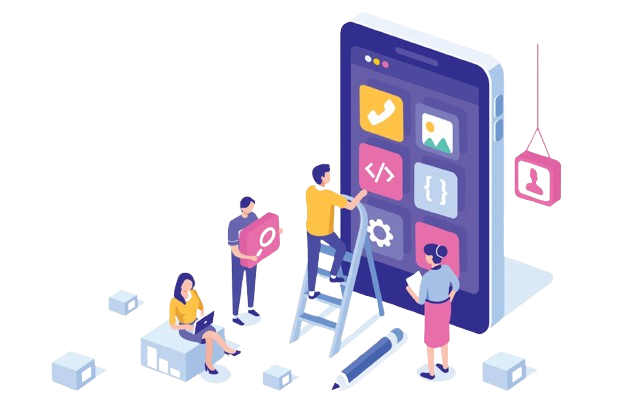Discover the Top 6 Reasons Why Opting for Hybrid App Development is a Wise Choice
Cost efficiency
Hybrid apps are developed using a single codebase, which cuts down the development time and cost. Businesses with budget constraints can benefit greatly from this. Like Instagram uses a hybrid approach to reach users across different platforms efficiently.
Easy maintenance
Hybrid apps are easier to maintain compared to native apps. Updates can be released without requiring users to download new versions, making it ideal for businesses looking for hassle-free maintenance. The Uber app maintains a seamless user experience across platforms through hybrid development.
Wider Reach
Hybrid apps can run on multiple platforms, enhancing the reach of businesses. It is beneficial for companies aiming to target a broad audience without the need for separate Android and iOS teams. Twitter benefits from a hybrid mobile app that extends its reach to a wider audience.
Quick deployment
A significant advantage of hybrid apps is quicker deployment. Companies aiming for a speedy market launch can opt for hybrid apps. The single codebase can be employed to create apps for various platforms simultaneously. Help quickly reached multiple platforms with its hybrid application.
Offline capabilities
Hybrid apps can store some data offline. This feature is essential for businesses aiming to provide services in areas with unstable internet connectivity. Example: Amazon’s mobile app allows browsing of previously loaded content even without an internet connection.
Native experience with Web technology
Hybrid apps leverage web technologies while delivering a near-native user experience. This dual advantage is vital for businesses seeking to maintain user-friendliness without compromising on development efficiency. LinkedIn utilizes hybrid technology, providing a native-like experience while leveraging the benefits of web technologies.
4 Key Qualities of Exceptional Hybrid App Development
Quality hybrid app development is crucial for creating successful cross-platform applications that meet user expectations and business goals. By focusing on performance, user experience, code reusability, and seamless integration, developers can create hybrid apps that rival native applications in functionality and appeal. Syscentric's expertise in hybrid app development ensures that your application stands out in the competitive digital landscape, offering the best of both web and native technologies.
Optimal Performance
A well-developed hybrid app should offer performance comparable to native apps. This involves efficient code optimization, minimizing API calls, and leveraging device capabilities effectively. According to a study by Forrester, 53% of users uninstall apps that are slow or crash frequently, highlighting the importance of performance in user retention.
Seamless User Experience
Quality hybrid app development focuses on creating a consistent and intuitive user interface across all platforms. This includes adhering to platform-specific design guidelines while maintaining brand consistency. Research shows that 90% of users stop using an app due to poor performance, emphasizing the critical role of user experience in app success.
High Code Reusability
Efficient hybrid app development maximizes code reusability, allowing developers to write once and deploy across multiple platforms. This approach can reduce development time by up to 50-80% compared to native app development, according to industry reports, resulting in faster time-to-market and cost savings.
Smooth Integration with Device Features
Top-notch hybrid apps seamlessly integrate with device-specific features like cameras, GPS, and push notifications. A survey by Clutch.co found that 70% of app users expect apps to take full advantage of device capabilities, underscoring the importance of smooth integration in meeting user expectations.
Hybrid App Development FAQs
Find detailed answers about hybrid app development, including its advantages, performance comparison with native apps, popular frameworks, costs, updates, and challenges.



